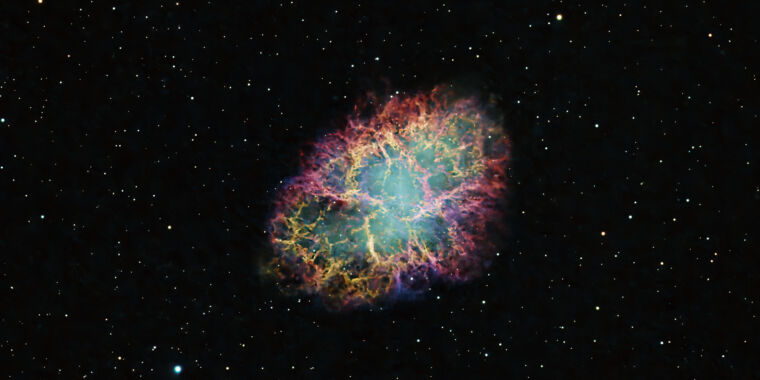Paul Macklin
Good morning. It’s January 5, and today’s photo reveals the Crab Nebula in all of its glory.
This object, known more formally as Messier 1 or M1, earned its colloquial name when Anglo-Irish astronomer William Parsons observed and drew this object in the early 1840s. It looked something like a crab with arms, and the appellation stuck. The nebula had been discovered about a century earlier by English astronomer John Bevis.
The nebula is actually a supernova remnant from a star that was observed popping in 1054 and recorded by Chinese astronomers. That must have been quite a sight, because the supernova occurred only about 2,000 light-years from Earth, which is relatively close as these things go. It likely was as bright as Venus and visible during daylight hours for a few weeks.
This image was captured by amateur astronomer Paul Macklin in Indiana. And it’s quite spectacular.
Source: Paul Macklin
Do you want to submit a photo for the Daily Telescope? Reach out and say hello.

Dr. Thomas Hughes is a UK-based scientist and science communicator who makes complex topics accessible to readers. His articles explore breakthroughs in various scientific disciplines, from space exploration to cutting-edge research.








